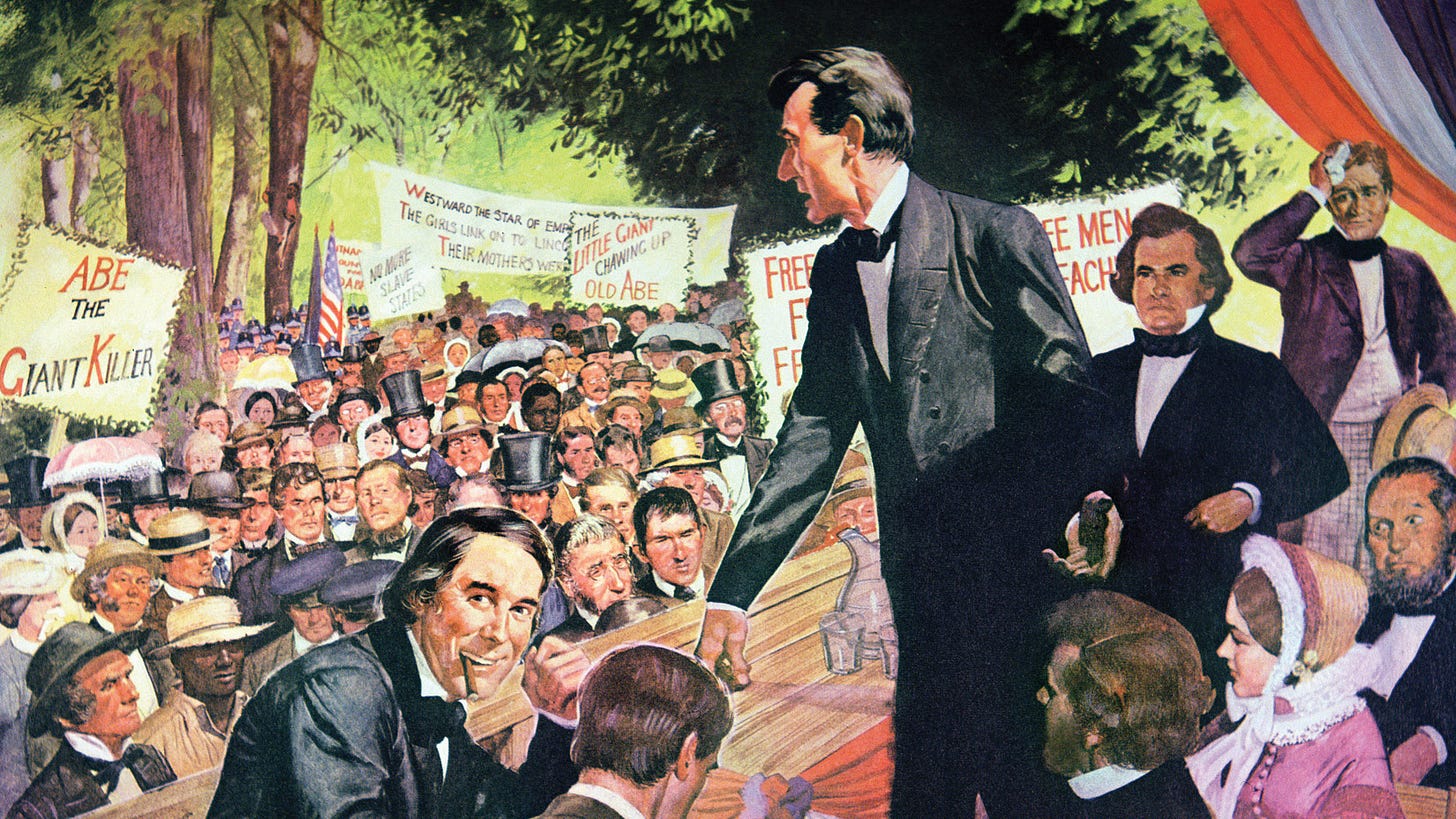Let’s put this out there: I follow politics. I don’t let it define me as it did years ago, but I’m watching. I read political web sites, watch what like-minded observers are posting—stuff like that.
And, I have opinions. Strong ones. I do my best to try and not let my beliefs color my view of other people, but admittedly, sometimes it is difficult. Because when I see someone saying stuff which clashes with what I believe . . . well, it’s not easy for me.
But I’m working on it, because no one should be defined by our politics. We’re people first. I can’t forget this.
So, here’s the thing. As a culture we may not be as divided as ever—we’re not fighting a Civil War, after all—we are split on so many issues. I don’t need to name them, they are out in front of us on the news every day.
My question, however, is “What do we do about this division?” We can’t just wait till the next election and pull for our side; we’ve done this for decades and the division is only getting worse.
And we can’t blame it all on one guy or a small group.
A 167-year-old idea
So, I’ve got a modest proposal: Let’s talk about it. The right way. We need to bring back civil debates. Real debates. Not made-for-TV clashes with a couple of moderators who steer the verbal food fight.
Just a conversation between two people. Maybe four.
Hey, remember the Lincoln-Douglas Debates? If you do, you’re more than 160 years old, so probably not. But in their Illinois senate race, Abraham Lincoln and Stephen Douglas had seven debates of more than two hours each. No moderators. No gotcha questions. Just speeches with points and counterpoints. The people decided.
Lincoln lost the election, by the way. But the debates raised his profile, leading him to the presidency in the election of 1860.
What if . . . ?
Here’s my thought: Perhaps a network can lead the way by picking an issue and inviting two thought leaders to carry on a civil debate. Perhaps illegal immigration? Cutting or expanding federal spending? Abortion? Economic models? Israel? Ukraine?
Heck, let’s do ‘em all and then some, over time.
The format would be simple. If there has to be a moderator, no questions. None. Heck, I’ll pick Bret Baier. I like him. But it can be someone else. No worries. And the moderator simply says, “The topic for tonight is . . .”
And that’s it. The rules are decided in advance. The first speaker gets, say, 15 minutes. the second gets 15. Then, the two can go back and forth, no more than three minutes, because we don’t want someone to play verbal keep away all night.
The entire debate is set for two hours, which means, both speakers would get not only their opening 15 minutes, but then 10—count ‘em—TEN! opportunities to speak without interruptions.
At the end, both speakers get five minutes to wrap up.
We could do this in a two-hour window, and even have commercials so some lucky network can make money. Because I believe people will watch.
Why it matters
As a people, we need debates like this to lower the temperature of today’s rhetoric. Frankly, I’m even bored with seeing “my” side talk with a sympathetic TV host, tearing down those on the other side of the aisle. While sometimes I learn new information, usually it’s just the same ole stuff, repackaged.
Each side has now retreated to its favorite networks, talking over and around each other. And even in those rare moments when we see two sides represented on the same platform, the chatter is in 30-second bites in a five-minute “block,” then on to commercial. This makes for pithy social media posts, but never gives us a full picture of the issue in question.
We, as a culture, can do better.
Which is where faith comes in. Because with many of these issues—even the economic stuff—we are told to be people of compassion. I totally agree. 100%.
So perhaps in a few of these debates, both sides can offer a deep dive into what compassion truly looks like, whether compassion is best in a government initiative or through the private sector, and even which groups might be overlooked when we talk about this important character trait in the public sphere.
Yes, it’s time we talked about the big issues of the day. Let’s hear both sides, unfiltered, unedited and uninterrupted. Proverbs 18:17 tells us, “The one who states his case first seems right, until the other comes and examines him.” (ESV)
Makes sense to me. Let’s have that conversation. And more than one.
Me? I’m ready for the first debate. It’s time for Bret Baier—or somebody—to step forward and make it happen. We’d all be better for it. Oh, and if this idea ever makes it to TV, I’ll take a cut of the ad sales.





I wonder if we could train leaders to listen and debate, and if it could seep into the public. Reagan seemed to be able to maintain a good humor without losing his cool with the Democrats.
Kirk, I agree. I am a retired Counselor and Minister who wrote a dissertation on equipping Lay people to care for one another with grace, mercy, and understanding. As a Counselor, I saw client after client seeking help to resolve their conflicts.
We spent several weeks meeting with that person, teaching them how to relate better to their spouse, parents, children, and boss. I decided it was better to teach entire classes how to communicate with genuine concern, grace, mercy, and humility and save their insurance several thousand dollars.
It can save marriages, jobs, and careers.